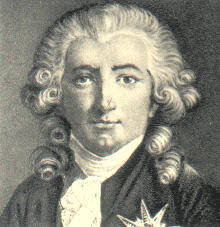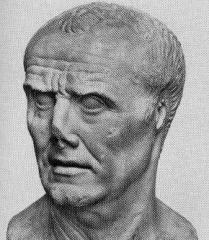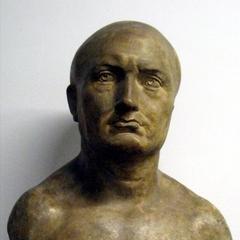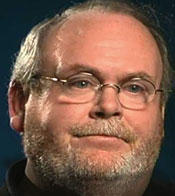Edmund Burke Quotes - Page 15
Edmund Burke (1834). “The Beauties of Burke, Consisting of Selections from His Works”, p.126
No sound ought to be heard in the church but the healing voice of Christian charity.
Edmund Burke (1792). “The Works of the Right Honourable Edmund Burke, Collected in Three Volumes. Vol. I.[-III.].”, p.33
Edmund Burke (1963). “Edmund Burke: Selected Writings and Speeches”, p.201, Transaction Publishers
Edmund Burke (2016). “Delphi Complete Works of Edmund Burke (Illustrated)”, p.33, Delphi Classics
Edmund Burke (2016). “Delphi Complete Works of Edmund Burke (Illustrated)”, p.3681, Delphi Classics
Edmund Burke (1807). “The Works of the Right Honourable Edmund Burke”, p.116
Edmund Burke (2016). “Delphi Complete Works of Edmund Burke (Illustrated)”, p.1453, Delphi Classics
Edmund Burke (1852). “The works and correspondence of...Edmund Burke”, p.267
Edmund Burke (2008). “The Writings and Speeches of Edmund Burke: On Conciliation with America; Security of the Independence of Parliament; on Mr. Fox's East India”, p.242, Cosimo, Inc.
Edmund Burke (2005). “Burke, Select Works”, p.271, The Lawbook Exchange, Ltd.
I know of nothing sublime which is not some modification of power.
Edmund Burke (1824). “A Philosophical Inquiry Into the Origin of Our Ideas of the Sublime and Beautiful”, p.62
'Reflections on the Revolution in France' (1790) p. 113
Edmund Burke (2016). “Delphi Complete Works of Edmund Burke (Illustrated)”, p.1537, Delphi Classics
'Thoughts on the Cause of the Present Discontents' (1770) p. 7
Edmund Burke, Robert MONTGOMERY (Author of “Satan.”.) (1853). “Edmund Burke: being first principles selected from his writings. With an introductory essay by Robert Montgomery”, p.127
"On Taste, on the Sublime and Beautiful, Reflections on the French Revolution & a Letter to a Noble Lord".
Power, in whatever hands, is rarely guilty of too strict limitations on itself.
Edmund Burke (1811). “Maxims and opinions, moral, political and economical, with characters, from the works of ... Edmund Burke”, p.46
"Revolutionary Writings: Reflections on the Revolution in France and the First Letter on a Regicide Peace".
'Thoughts on the Cause of the Present Discontents' (1770) p. 30
Edmund Burke (1824). “A Philosophical Inquiry Into the Origin of Our Ideas of the Sublime and Beautiful”, p.187
Thoughts on the Cause of the Present Discontents (1770)







